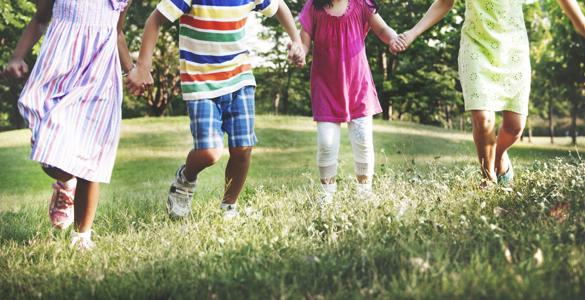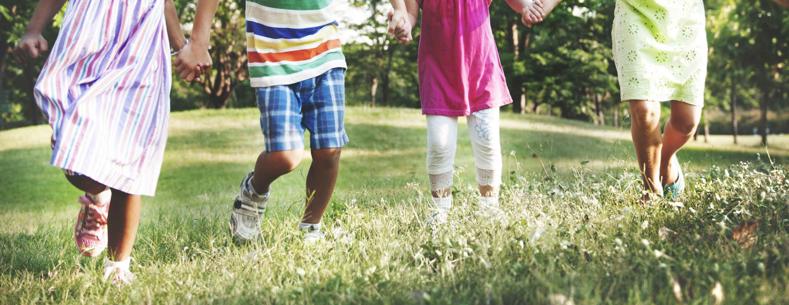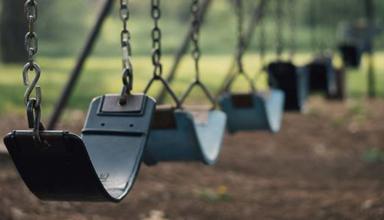The harm loneliness can cause, both physically and mentally, can be devastating to people of all ages - it is a serious public health concern which studies suggest can be as harmful as smoking 15 cigarettes a day (Holt-Lunstad and Smith, Journal PLOS Medicine)
Children’s Mental Health Week 2023 will take place this week from 6-12 February. It’s run by children’s mental health charity Place2Be to raise awareness of the importance of children and young people’s mental health. Around five children in every classroom have a mental health problem and many more struggle with challenges from bullying to bereavement.
This year’s mental health theme is Let’s Connect:
Let’s Connect is about making meaningful connections. People thrive in communities, and this connection is vital for our wellbeing. When we have healthy connections – to family, friends and others – this can support our mental health and our sense of wellbeing (Place2Be).
It may seem odd that a children’s charity has focused on loneliness and isolation. Loneliness is often associated with elderly people (viewed as an ageing problem). But anyone can feel disconnected and lonely. The mental health charity Mind explains that loneliness doesn’t necessarily mean being alone:; “It’s the feeling of aloneness even in the presence of others”.
This article looks at why the theme ‘Lets Connect’ has been chosen and what the Welsh Government is doing to help combat loneliness in children and young people.
Loneliness as a social problem
Feeling lonely isn't in itself a mental health problem, but the two are strongly linked. Mind explains that feeling lonely can have a negative impact on a child or young person’s mental health,. It increases the risk of depression, anxiety and sleep problems. It risks young people using coping mechanisms such as smoking, drinking excessively or taking drugs. It can also lead to disordered eating and obesity.
Research by the Office for National Statistics (ONS) shows that, pre-pandemic, younger adults were more likely to feel lonely than older age groups. The research found that almost 10% of people aged 16 to 24 were "always or often" lonely - the highest proportion of any age group. This was more than three times higher than people aged 65 and over.
Around 11% of children aged 10-15 years old, 16% of 12 year olds and 13% of 18 year olds are “often” lonely.
The Wales Centre for Public Policy has published extensively on ‘Who is lonely in Wales’ and has shared its ideas for tackling loneliness.
Other research has found that post-pandemic, children and young people may be lonelier than ever (and lonelier than any other age group). The cost of living is also likely to impact on loneliness. Having no money to take part in activities will undoubtedly have a negative impact on children and young people’s emotional wellbeing.
Combating loneliness
The Welsh Government pledged £1.4m to support its first ever loneliness and social isolation strategy in 2019. The strategy sets out a vision to support people vulnerable to loneliness. It aims to create a culture where it’s ok to say “I’m lonely, without stigma or shame”. Talking about loneliness and social isolation more openly is seen as a potential solution.
The Strategy acknowledges that children and young people are at risk. It takes a universal approach to promoting children’s wellbeing through public messaging and school activities to build individual resilience (see the Welsh Government’s Framework for Schools).
The importance of strong relationships as children and young people move through life underpins the Welsh Government’s whole school approach. Some children and young people may need extra support in school and targeted interventions or specialist help. But generally ‘social connections’ – made at school, through social activities and clubs, by volunteering and spending time with family, is the focus of Welsh Government preventative action.
This point was made by the Senedd’s Health and Social Care Committee in its recent ‘Connecting the dots report’. It described relationships and connections as key conditions required for people to thrive, saying that safe and supportive relationships with families, friends and communities provide “security, meaning, purpose and trust”.
As we’ve said previously, the Welsh Government is evidently committed to improving children and young people’s mental health and wellbeing. But there’s a lack of evidence on effective ways to reduce loneliness for young people. The Wales Centre for Public Policy has said “It’s unclear whether interventions are having the desired impact”.
The Deputy Minister, Lynne Neagle’s recent response to a request from the Senedd’s Children, Young People and Education Committee for a progress update on improving children’s mental health lacked detail on all aspects of children’s mental health. The Welsh Government has said very little about the specific impact of loneliness and social isolation on children and young people. That may surprise some given the relevance to the COVID-19 context, and the importance of supporting children and young people to re-establish social contacts and connections - as part of a broader approach to building resilience and wellbeing.
Connecting in healthy and meaningful ways
It’s also worth noting that the Welsh Government’s Strategy refers to social media and the internet as a “double-edged sword”. It recognises social media can be “an avenue for bullying, harassment and social pressure that can cause, or contribute to, a child’s sense of social isolation and loneliness”. The Strategy provides little in the way of addressing the impact of social media on children’s mental health and well-being, other than acknowledging the dangers of cyberbullying and crime.
The Mental Health Foundation has said, “Teens can have thousands of friends online and yet feel unsupported and isolated”. It may be true for some young people that they can have lots of “friends” but little companionship.
This is why Place2Be is saying ‘Let’s Connect’ during Children’s Mental Health Week 2023.
Article by Sarah Hatherley, Senedd Research, Welsh Parliament






